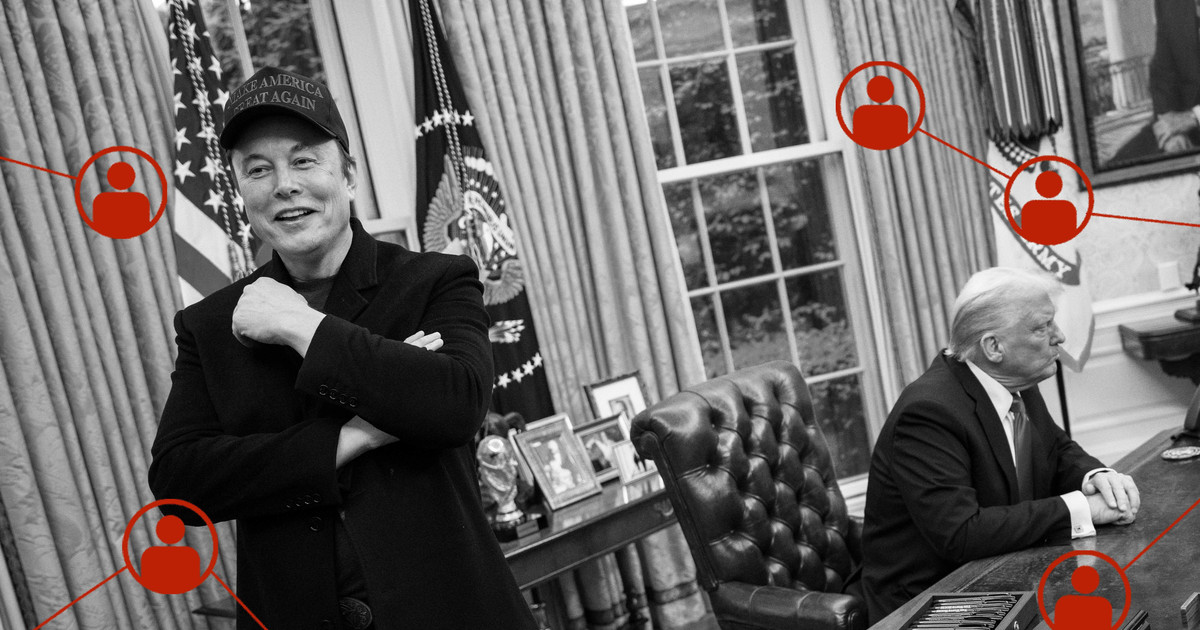In a review of the Office of Management and Budget records, ProPublica discovered that despite calls for budget cuts and layoffs across the federal government from Elon Musk and his subordinates, the funding for the Department of Government Efficiency (DOGE) has increased significantly, reaching nearly $40 million. Billionaire investor Musk has described DOGE as being “maximally transparent.” President Donald Trump mentioned that approximately 100 people are employed by the group; however, his administration has withheld public access to information regarding DOGE’s spending and operations. To gain insight into DOGE’s operations, ProPublica has compiled a list of employees’ names and backgrounds. They identified about 46 individuals, including 12 new names added to their database.
Both Trump and Musk have portrayed DOGE as a mechanism to reduce what they consider a large and inefficient bureaucracy. However, the budgetary reductions have severely impacted programs that provide essential services to vulnerable populations both domestically and globally. Representative Rosa DeLauro, the top Democrat on the House Appropriations Committee, expressed skepticism about DOGE’s legal authority to undertake these actions. She described DOGE as a “made-up federal department” that is squandering taxpayer funds, stating, “This unlawful effort is stealing federal funds from American families and businesses.”
A majority of DOGE’s funding, as indicated by records, has been derived from other federal agencies through the provisions of the Economy Act, a statute nearly a century old. The Trump administration has treated DOGE as a federal agency to redirect these funds, allowing DOGE to act with agency-level authority by deploying staff to other agencies to decree policies and manage personnel.
ProPublica’s investigation indicates that DOGE might be subjected to open-records laws similar to other federal entities, yet it has resisted answering Freedom of Information Act requests, citing executive privileges. Musk has been inconsistent regarding whether DOGE staff receive salaries, initially stating they were unpaid before conceding that some receive compensation.
This contradiction places the Trump administration in a precarious legal position. Legal experts argue that if DOGE is a federal agency, it must comply with public records laws. Conversely, if it is not an agency, legal challenges may arise over DOGE’s sizable funding allocations without proper authorization. Adam Grogg, formerly of the Office of Management and Budget and now legal director at Governing for Impact, commented, “The administration can’t have it both ways,” emphasizing the inconsistency in DOGE’s operational status and authority.
A federal judge recently questioned the administration’s lawyers over their contradictory positions regarding DOGE, pointing out the selective application of agency status. U.S. District Judge John Bates highlighted these discrepancies, describing the government’s argument as inconsistent. ProPublica has also confirmed the identities of 12 additional government staffers affiliated with DOGE or Musk’s network of companies, involving roles within the Trump administration. These confirmations were made by cross-referencing agency records, information from government insiders, and documents from ongoing litigation challenging DOGE’s authority.
Employees connected to DOGE have been dispersed across various agencies. Within the Department of Education, DOGE personnel are reportedly examining how to expand AI usage to identify waste and engage with student loan recipients. Meanwhile, at the Environmental Protection Agency, they have allegedly accessed contracting databases. These staffers hold executive roles or nondescript titles such as “senior adviser,” leaving the specifics of their responsibilities unclear.
A new name added to DOGE’s staff list is Katherine Armstrong Loving, who is related to Brian Armstrong, the CEO of Coinbase, a leading entity in the cryptocurrency industry. Coinbase contributed $1 million to Trump’s inauguration fund, and Armstrong has met with Trump to discuss potential administration appointments.
While Musk has previously celebrated DOGE’s budget cuts, Trump officials have clarified that Musk is not in charge of the department. Currently, the White House has refrained from responding to requests for comment.
The Trump administration initiated DOGE’s funding shortly after assuming office, utilizing $750,000 from a White House fund dedicated to information technology initiatives. The funding has considerably expanded since then, with the latest installment including $14 million designated for “software modernization initiatives,” bringing total funding to over $39 million within Trump’s initial month in office. Typically, Congress has allocated approximately $50 million annually for IT modernization, which DOGE has replaced. However, the administration has not disclosed specific details on the source or allocation scope of DOGE’s budget or identified any employees receiving salaries.
Funding transfers between federal agencies are common, but must adhere to the “purpose statute,” which restricts fund usage to specific congressional authorizations. DOGE’s operational methods may potentially infringe these legal restrictions, said Christie Wentworth from the ethics watchdog Citizens for Responsibility and Ethics in Washington. This organization warns that using funds intended for IT purposes for unrelated initiatives could contravene federal law.
